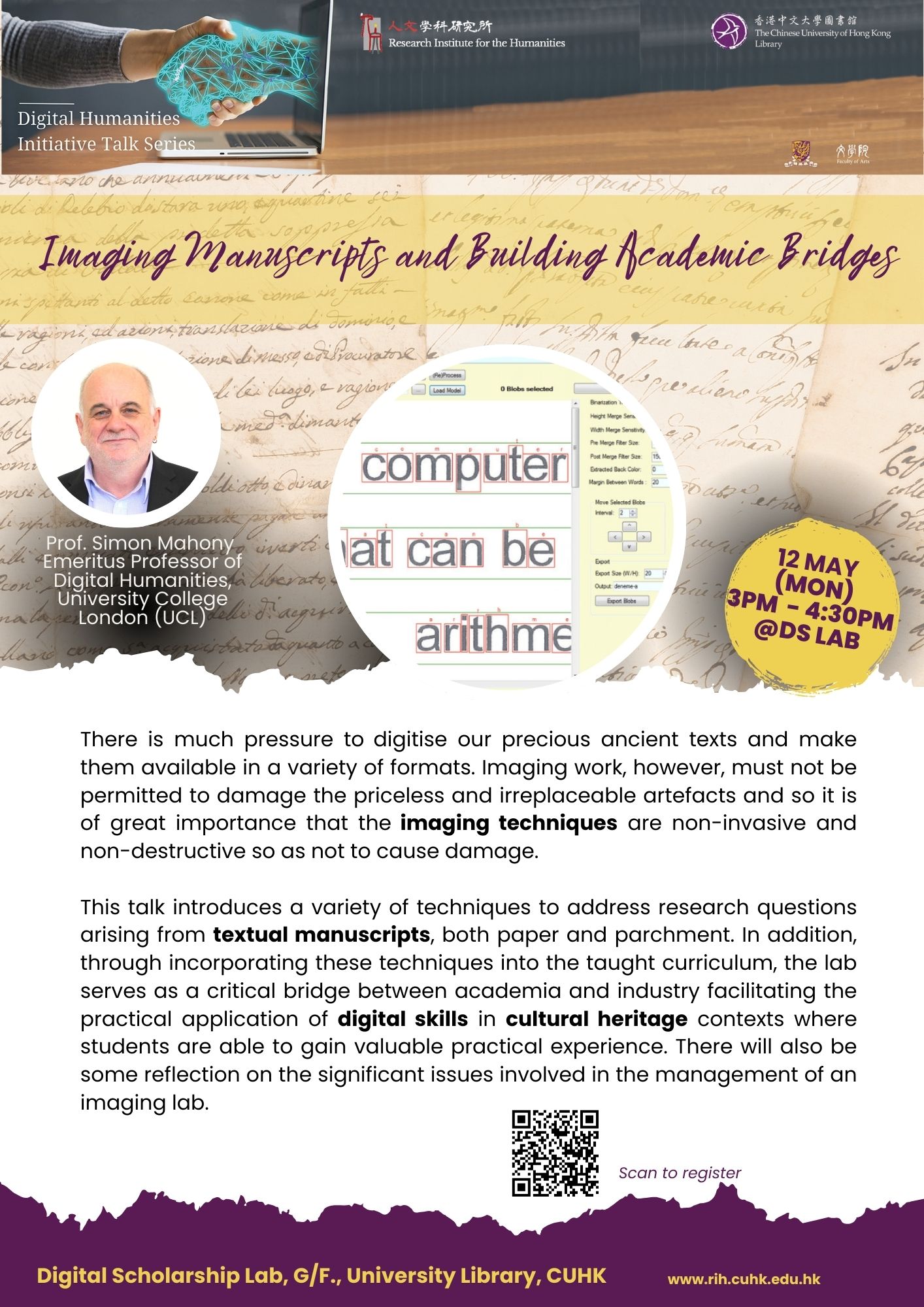Imaging Manuscripts and Building Academic Bridges
Digital Humanities Initiative Talk Series
Date: 12 May 2025 (Monday)
Time: 3:00 pm – 4:30 pm
Location: Digital scholarship Lab. G/F., University Library, CUHK
Speaker: Prof. Simon Mahony
Emeritus Professor of Digital Humanities,
Department of Information Studies,
University College London (UCL)
Click here to register.
About the talk
There is much pressure to digitise our precious ancient texts and make them available in a variety of formats. Imaging work, however, must not be permitted to damage the priceless and irreplaceable artefacts and so it is of great importance that the imaging techniques are non-invasive and non-destructive so as not to cause damage.
This talk introduces a variety of techniques to address research questions arising from textual manuscripts, both paper and parchment. In addition, through incorporating these techniques into the taught curriculum, the lab serves as a critical bridge between academia and industry facilitating the practical application of digital skills in cultural heritage contexts where students are able to gain valuable practical experience. There will also be some reflection on the significant issues involved in the management of an imaging lab.
About the speaker
Simon Mahony is Emeritus Professor of Digital Humanities, Department of Information Studies, University College London (UCL); Visiting Professor, Department of Information Management, Peking University. He is a Corresponding Member of the Sub-Committee on Education and Research, UNESCO Memory of the World Programme; Fellow of the Royal Historical Society.
Prof. Mahony was Programme Director of the MA/MSC in Digital Humanities at UCL (2011-2017) and Director of UCL Centre for Digital Humanities (2017-2020). He is a doctoral supervisor, and on the advisory and editorial boards of several journals and research groups. His research focus is on digital humanities with specific interests in education, communication, information studies, digital storytelling, equality, diversity, inclusion (EDI), and the open agenda.


